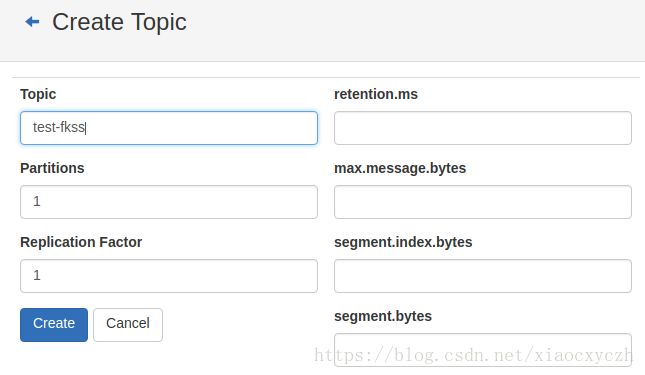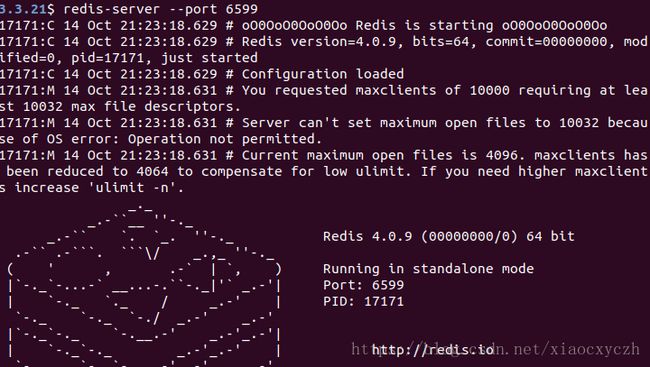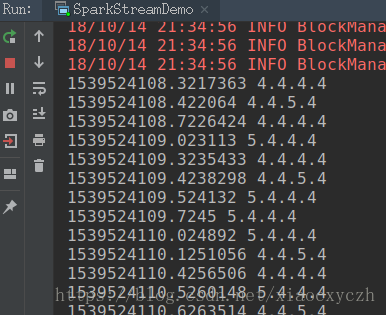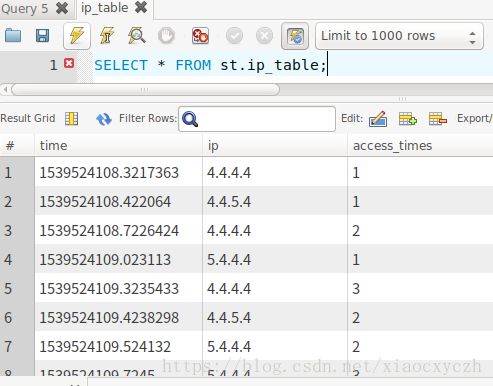Flume+Kafka+SparkStreaming+Redis+Mysql做的实时日志分析ip访问次数
新手学习,如有错误请指正,感谢!
1.启动zookeeper和kafka,并建立一个topic为test-fkss,为了方便观察我是通过kafka-manager添加
2.配置Flume并启动,监听文件为/home/czh/docker-public-file/testflume.log,发送给kafka
a1.sources = r1
a1.sinks = k1
a1.channels = c1
a1.sources.r1.type = exec
a1.sources.r1.command = tail -F /home/czh/docker-public-file/testflume.log
a1.sources.r1.channels = c1
a1.sinks.k1.type = org.apache.flume.sink.kafka.KafkaSink
a1.sinks.k1.topic = test-fkss
a1.sinks.k1.brokerList = 172.17.0.2:9092
a1.sinks.k1.requiredAcks = 1
a1.sinks.k1.batchSize = 2
a1.sinks.k1.channel = c1
a1.channels.c1.type = memory
a1.channels.c1.capacity = 1000
a1.channels.c1.transactionCapacity = 100在flume文件夹执行启动命令bin/flume-ng agent --conf conf --conf-file conf/flume-conf.properties.template --name a1 -Dflume.root.logger=INFO,console
出现最下面一行说明启动成功
3.启动redis
4.启动sparkstreaming日志处理程序,具体代码如下
分析程序SparkStreamDemo.scala
import kafka.serializer.StringDecoder
import org.apache.spark.streaming.kafka.KafkaUtils
import org.apache.spark.streaming.{Seconds, StreamingContext}
import org.apache.spark.{SparkConf, SparkContext}
object SparkStreamDemo {
def main(args: Array[String]) {
val conf = new SparkConf()
conf.setAppName("flume_spark_streaming")
conf.setMaster("local[4]")
val sc = new SparkContext(conf)
sc.setCheckpointDir("/home/czh/IdeaProjects/SparkDemo/out/artifacts")
sc.setLogLevel("ERROR")
val ssc = new StreamingContext(sc, Seconds(3))
val kafkaParams = Map[String, String](
"bootstrap.servers" -> "172.17.0.2:9092",
"group.id" -> "test-fkss",
"auto.offset.reset" -> "smallest"
)
val topics = Set("test-fkss");
val stream = createStream(ssc, kafkaParams, topics)
val lines = stream.map(_._2)
lines.foreachRDD { rdd =>
rdd.foreachPartition { partitionOfRecords =>
partitionOfRecords.foreach(pair => {
val time = parseLog(pair)._1
val ip = parseLog(pair)._2
println(time+" "+ip)
val jedis = RedisClient.pool.getResource
jedis.select(0)
if(null == jedis.get(ip))
jedis.set(ip, "1");
else
jedis.incr(ip)
val at = jedis.get(ip).toInt
val c = new JDBCCommend()
c.add(time, ip, at)
jedis.close()
})
}
}
ssc.start()
ssc.awaitTermination()
}
def createStream(scc: StreamingContext, kafkaParam: Map[String, String], topics: Set[String]) = {
KafkaUtils.createDirectStream[String, String, StringDecoder, StringDecoder](scc, kafkaParam, topics)
}
def parseLog(log: String): (String, String) = {
var time = ""
var ip = ""
try{
time = log.split(" ")(0)
ip = log.split(" ")(1)
}
catch {
case e: Exception =>
e.printStackTrace()
}
(time, ip)
}
}Redis连接池RedisClient.scalaimport org.apache.commons.pool2.impl.GenericObjectPoolConfig
import redis.clients.jedis.JedisPool
object RedisClient extends Serializable {
val redisHost = "127.0.0.1"
val redisPort = 6599
val redisTimeout = 30000
lazy val pool = new JedisPool(new GenericObjectPoolConfig(), redisHost, redisPort, redisTimeout)
lazy val hook = new Thread {
override def run = {
println("Execute hook thread: " + this)
pool.destroy()
}
}
sys.addShutdownHook(hook.run)
}JDBC连接JDBCConnection.scalaimport java.sql.{Connection, DriverManager}
object JDBCConnection {
val IP = "172.17.0.2"
val Port = "3306"
val DBType = "mysql"
val DBName = "st"
val username = "root"
val password = "root"
val url = "jdbc:" + DBType + "://" + IP + ":" + Port + "/" + DBName
classOf[com.mysql.jdbc.Driver]
def getConnection(): Connection = {
DriverManager.getConnection(url, username, password)
}
def close(conn: Connection): Unit = {
try {
if (!conn.isClosed() || conn != null) {
conn.close()
}
}
catch {
case ex: Exception => {
ex.printStackTrace()
}
}
}
}
JDBC操作JDBCCommend.scalaclass JDBCCommend {
case class Ip(time: String, ip: String, access_times: Int)
def add(time: String, ip: String, access_times: Int): Boolean = {
val conn = JDBCConnection.getConnection()
try {
val sql = new StringBuilder()
.append("INSERT INTO ip_table (time, ip, access_times)")
.append("VALUES(?, ?, ?)")
val ps = conn.prepareStatement(sql.toString())
ps.setObject(1, time)
ps.setObject(2, ip)
ps.setObject(3, access_times)
ps.executeUpdate() > 0
}
finally {
conn.close()
}
}
}pom.xml
4.0.0
com
czh
1.0-SNAPSHOT
2008
2.11.0
scala-tools.org
Scala-Tools Maven2 Repository
http://scala-tools.org/repo-releases
scala-tools.org
Scala-Tools Maven2 Repository
http://scala-tools.org/repo-releases
org.scala-lang
scala-library
${scala.version}
org.specs
specs
1.2.5
test
org.apache.spark
spark-core_2.11
2.3.2
org.apache.spark
spark-sql_2.11
2.3.2
mysql
mysql-connector-java
5.1.12
org.apache.spark
spark-streaming_2.11
2.3.2
org.apache.spark
spark-streaming-kafka_2.11
1.6.3
redis.clients
jedis
2.9.0
com.alibaba
fastjson
1.2.47
src/main/scala
src/test/scala
org.scala-tools
maven-scala-plugin
compile
testCompile
${scala.version}
-target:jvm-1.5
org.apache.maven.plugins
maven-eclipse-plugin
true
ch.epfl.lamp.sdt.core.scalabuilder
ch.epfl.lamp.sdt.core.scalanature
org.eclipse.jdt.launching.JRE_CONTAINER
ch.epfl.lamp.sdt.launching.SCALA_CONTAINER
org.scala-tools
maven-scala-plugin
${scala.version}
5.启动模拟ip访问产生日志程序
write-flumelog.pyimport time
import random
for i in range(10):
f = open('/home/czh/docker-public-file/testflume.log', 'a')
time.sleep(random.randint(4, 9) * 0.1)
current_time = time.time()
ip = str(random.randint(4, 5)) + "." + str(random.randint(4, 4))\
+ "." + str(random.randint(4, 5)) + "." + str(random.randint(4, 4))
print(str(current_time) + " " + ip + "\n")
f.write(current_time.__str__() + " " + ip + "\n")
f.close()整体运行结果如下:
python程序写入ip和访问时间到log文件
sparkstreaming程序实时获取flume传入的数据计算访问次数写入mysql






